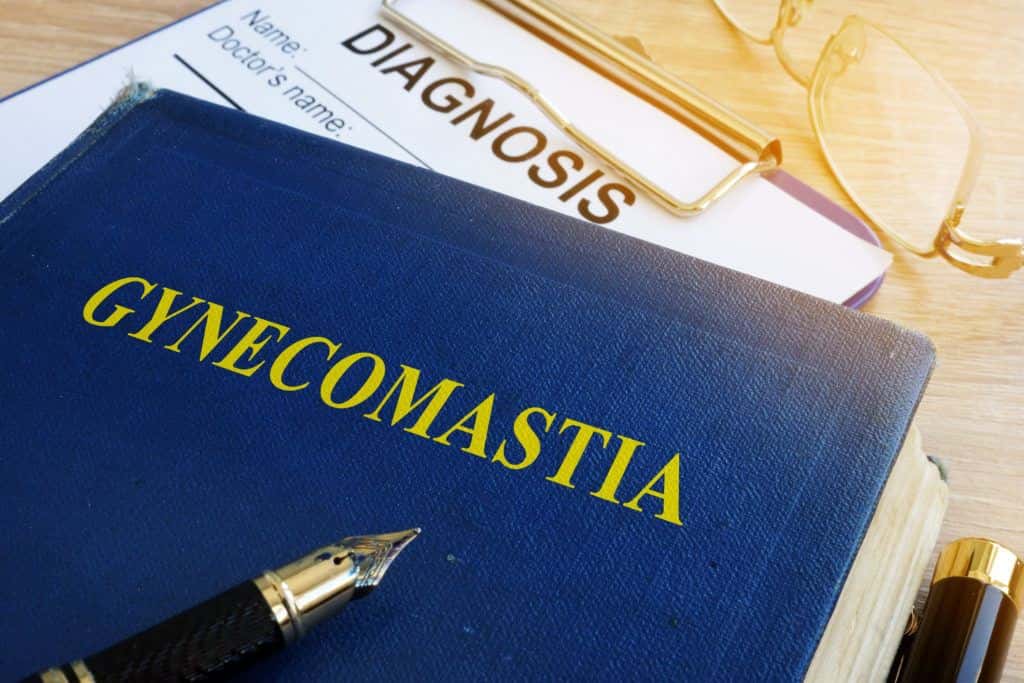How to Get Rid of “Man Boobs”
If you’ve ever been too embarrassed to take off your shirt at the beach, you’re probably familiar with the term “man boobs.” At least thirty percent of males are affected by gynecomastia—the medical term for male breasts—in their lifetimes. In fact, it’s the most common condition affecting breast tissue in men—and it doesn’t happen only when you put on weight. Additional upper body fat, and certainly obesity, will contribute to a fuller chest, but men at any weight can develop gynecomastia, and the cause is most often hormonal. Specifically, it happens when there is an imbalance between male estrogen and androgens, due to either an increase in estrogen production, a decrease in androgen production, or both. This leads to an enlargement of glandular tissue behind the nipples, or the dreaded “bosom” effect.
While most cases of gynecomastia aren’t due to a serious medical condition, the underlying hormonal imbalance causing it will persist and cause more problems down the line if not addressed—not to mention the psychological toll of walking around with a C-cup. Luckily, understanding and treating the contributing factors can help reverse the problem, in many cases without surgery.
What Causes Gynecomastia?
Hormonal changes due to aging are the most common culprit of gynecomastia, but many things can cause your hormones to fall out of whack and your chest tissue to swell, including certain illnesses and certain medications. Lifestyle factors such as diet and inadequate sleep can also contribute.
- Illness. If you’re plagued by breasts that have sprouted seemingly out of nowhere, the first thing you should do is see your physician to rule out any of the more serious, though rare, causes of this condition, including liver disease, pituitary tumors, kidney problems, hyperthyroidism, or breast cancer (which yes, does happen in men too). Even some hereditary disorders can be a culprit. But don’t worry—the vast majority of men have the less ominous causes of this condition.
- Aging. Male testosterone production drops one to two percent each year after age 30, leaving less testosterone available to balance out his estrogen (every man possesses low levels of estrogen to regulate sperm production, bone density, and mood) as he ages. Testosterone can convert into estrogen in the body—therefore, in essence, you are left with higher estrogen levels in your body, and estrogen is the hormone responsible for breast growth. A dip in testosterone also contributes to weight gain, and added fat stimulates the body to produce more estrogen—a double whammy leading to man boobs. Physicians within the BodyLogicMD network can help by balancing both levels; prescribing testosterone to counteract the deficiency and estrogen-blockers to combat your body’s conversion of testosterone to estrogen.
- Prescription Drugs. Up to 25 percent of gynecomastia cases are medication-induced. Certain antidepressants, benzodiazepines, androgen blockers, statins, acid blocking drugs, and blood pressure medications have been reported to cause gynecomastia. If you’re more top-heavy since starting new medications, you’ll want to bring it to the attention of your doctor. BodyLogicMD physicians can help you safely transition off certain drugs that may be causing a problem.
- Diet and Sleep.Both poor nutrition and sleep deprivation can mess with healthy hormone production and lower your testosterone levels. Processed foods, unhealthy fats, and excess sugar and alcohol all contribute to hormonal imbalance and obesity, two factors that lead to male breast tissue growth. High-carb, high-sugar diets lead to insulin resistance, making testosterone plummet. And when it comes to shut eye, a 2011 study published in the Journal of the American Medical Association found that just one week of sleeping five hours per night decreased the testosterone levels of healthy young men by 10 to 15 percent. BodyLogicMD physicians know the far-reaching impact of lifestyle factors, which is why they develop a targeted plan for each patient that optimizes their body’s hormones.
Finding the Best Treatment Plan for Gynecomastia
If gynecomastia is impacting your self-confidence, relationships, and sex life, contact a BodyLogicMD physician today to set up a consultation and have your hormones checked with urine and blood testing. Gynecomastia may be common, but it’s not normal. Bioidentical hormone replacement therapy, along with a customized nutrition and lifestyle plan, can help you get rid of your “man boobs,” drop weight, and reclaim your confidence.
